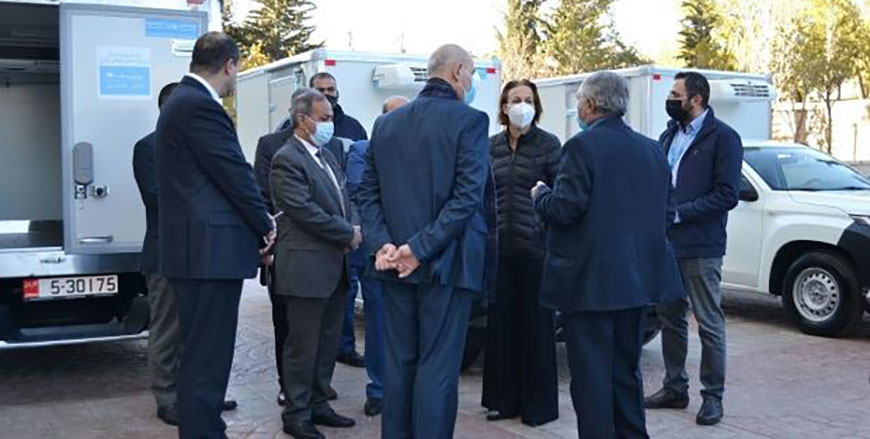AMMAN — UNICEF has donated essential cold chain equipment to the Ministry of Health so that children and mothers can receive routine immunisations. This comes after UNICEF donated 1.3 million doses of polio vaccines to the ministry.
The donation of equipment to the Health Ministry includes four cold rooms for the safe storage of vaccines, six refrigerated vehicles to transport vaccines, 150 vaccine refrigerators, 10 vaccine freezers to enhance storage capacity in health centres across the country and more than 600 electronic devices to ensure vaccines are kept at the correct temperature, according to a UNICEF statement.
"The Ministry of Health values our partnership with UNICEF and the continuous support for the National Immunisation Programme, in addition to their ongoing support to enhance national capacities and make sure we provide all children in Jordan with routine vaccinations,” said Secretary General of the Health Ministry for Epidemics and Communicable Diseases Raed Shboul.
“UNICEF’s generous donation will enhance the level of health services provided to citizens, all donation items will be distributed to hospitals and health service delivery sites across all governorates and districts,” he said.
“Vaccines save lives. UNICEF is committed to supporting the government to ensure that every child in Jordan is kept safe and healthy through routine immunisation and the cold chain is the backbone of all vaccination campaigns,” said UNICEF Representative in Jordan Tanya Chapuisat.
The cold chain is the system for safe storage and transport of vaccines. Vaccines must be continuously stored in a limited temperature range — from the time they are manufactured until the moment of vaccination. Temperatures that are too high or too low can cause a vaccine to lose its potency — its ability to protect against disease.
Routine immunisation has been mandatory in Jordan since 1979 and all children, regardless of their nationality, have the right to receive free vaccinations. The donation of polio vaccines as part of the National Immunisation Programme for children will help maintain Jordan’s polio-free status, which the country has had since 1992.
A robust and well-functioning cold chain will also support the safe transport and storage of COVID-19 vaccines. Leveraging its global supply chain, UNICEF has supported the Kingdom's COVID-19 response efforts through the donation of ventilators, syringes, and hygiene items for frontline workers, as well as supporting the national communication campaign and the procurement and transportation of COVID-19 vaccines as part of the COVAX Facility with the Ministry of Health and its partners, the statement said.
UNICEF is also supporting the Ministry of Health’s first national cold chain equipment inventory to help modernise the existing system, making it ready to respond to any future expansions to the immunisation programme.
UNICEF’s support to the national health system to strengthen child immunization is supported by the United States Department of State, Bureau of Population, Refugees and Migration.
